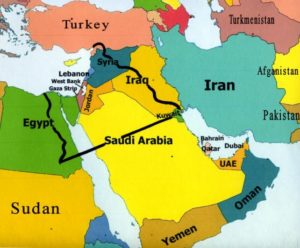“Adonai answered Moshe, “The daughters of Zelophehad are right in what they say. You must give them property to be inherited along with that of their father’s brothers; have what their father would have inherited pass to them.”-Numbers 27:6-7
We just got done studying about the unique situation of a man name Zelophehad who died but didn’t leave behind any sons, but did leave behind five daughters.
The thorny question that arose because of this situation was exactly who would receive Zelophehad’s inheritance since the established protocol in those days was that ONLY a son could receive an inheritance?
Well, Moses brings this situation to the Lord’s attention who informs Moses that in a case where a man has no sons but did have daughters, the inheritance could be passed on to the daughters.
There is another fundamental principle being brought to the fore here that I want you to pay attention to.
The land was NEVER EVER to leave the possession of the Israelite family to whom it was originally leased to.
And yes, I when I composed that last sentence, I chose my words very carefully making sure to NOT use the word “owned“.
The Israelite families in the land of Canaan did NOT own the property they were given.
Rather the Torah makes it clear that the real owner is HASHEM and He was just “leasing” the land to the Israelites.
Recall the following ruling:
“The land is not to be sold in perpetuity, because the land belongs to me — you are only foreigners and temporary residents with me.”-Leviticus 25:23
I’ve mentioned this before but the best way to understand the difference between “ownership” and “possession” is to think of what happens when you lease a house.
When you lease a house, you are simply given the right to “possess” the house for the purpose of living in it or using it as your own.
The title to the house and the land it stands on does NOT belong to you.
HASHEM was not passing on the title to Canaan over to Israel, he was only giving them and ONLY THEM the sole use of the property in perpetuity.
Understand that the owner of the land has the right to sell the land to whomever he wants, even a foreigner.
However, the leaser of the a given piece of property does NOT have the right to sell the land.
“One cannot sell what one does not own” is really what it comes down to.
Or to put it another way, the Promised Land does NOT have a FOR SALE sign on it and never will.
The Lord in his ruling concerning Zelophehad and his five daughters was all about keeping Promised Land territory specifically where it belongs: in the hands of the Israelites.
This is also what the Sabbatical years connected to the laws of Jubilee were about.
They were all about “possessing” or “leasing” the land for a time but never owning it.




Leave a Reply